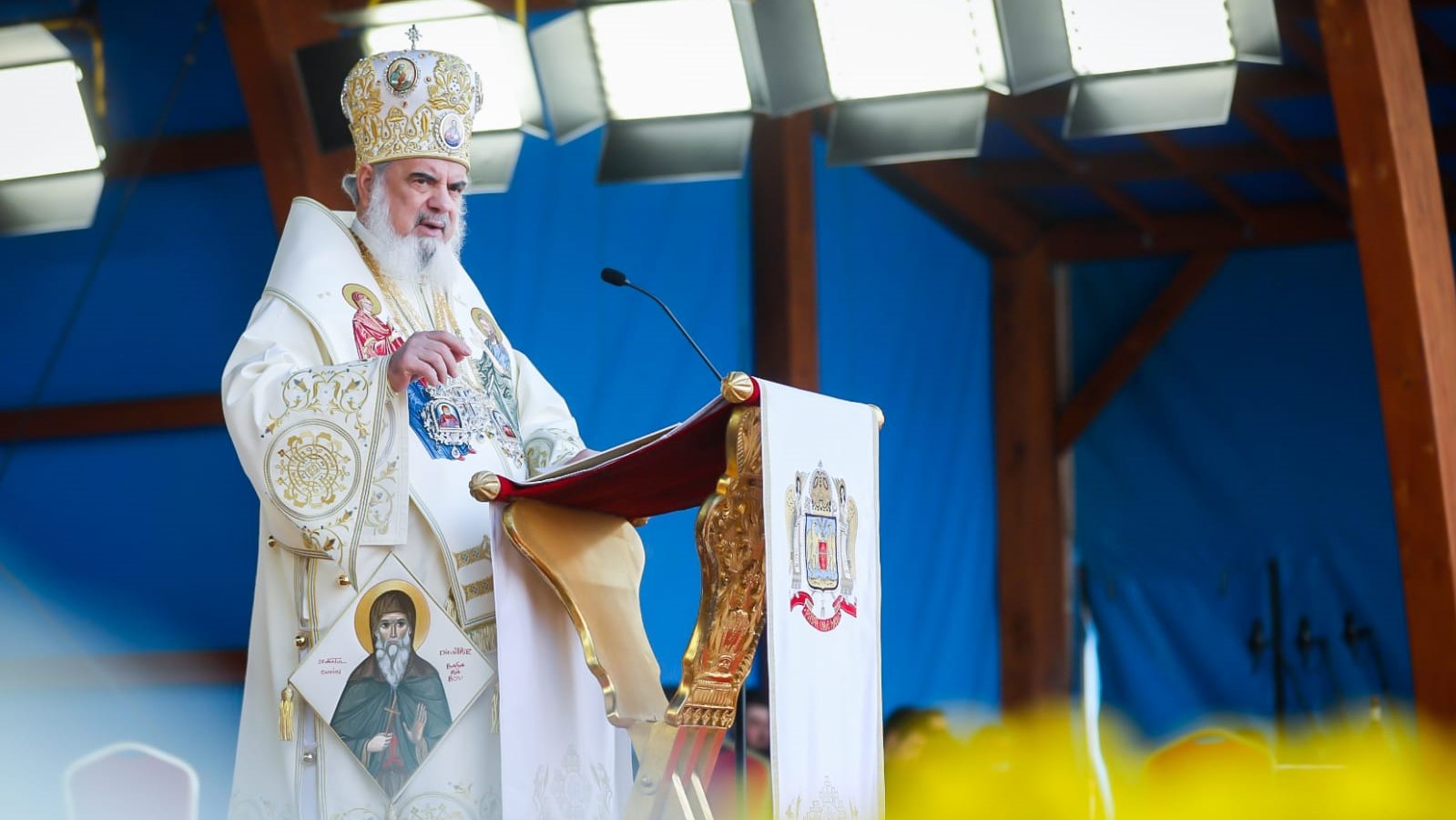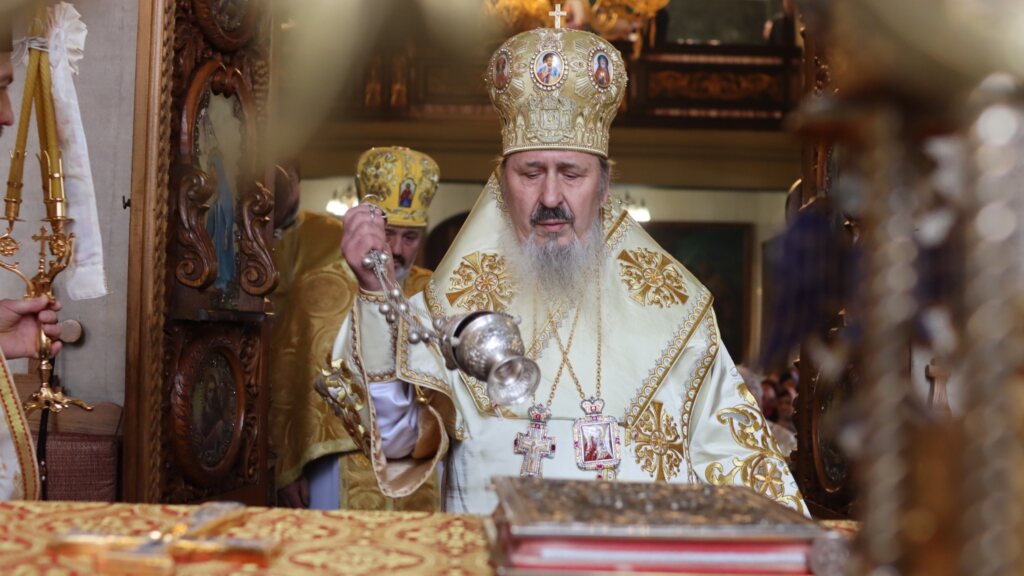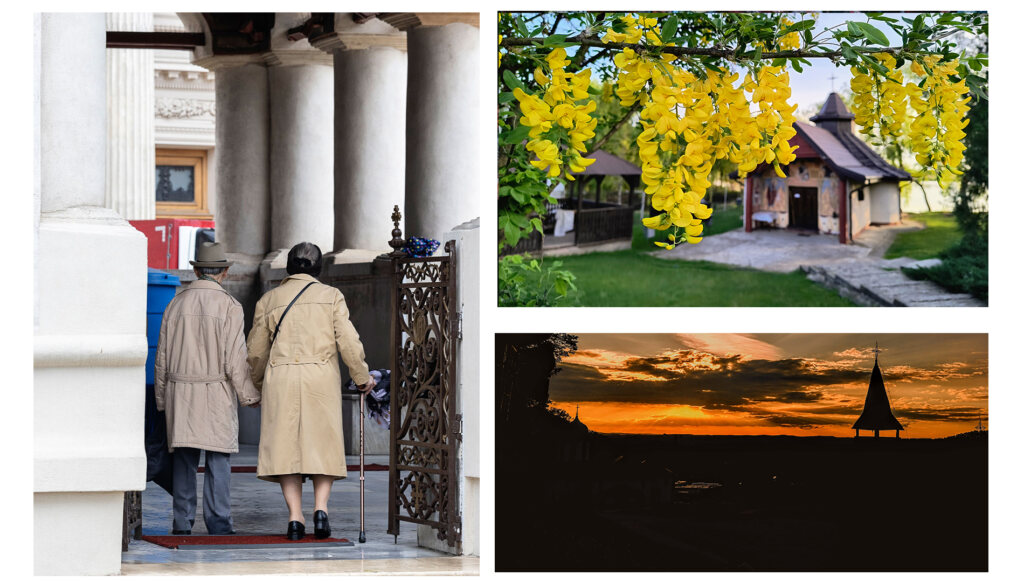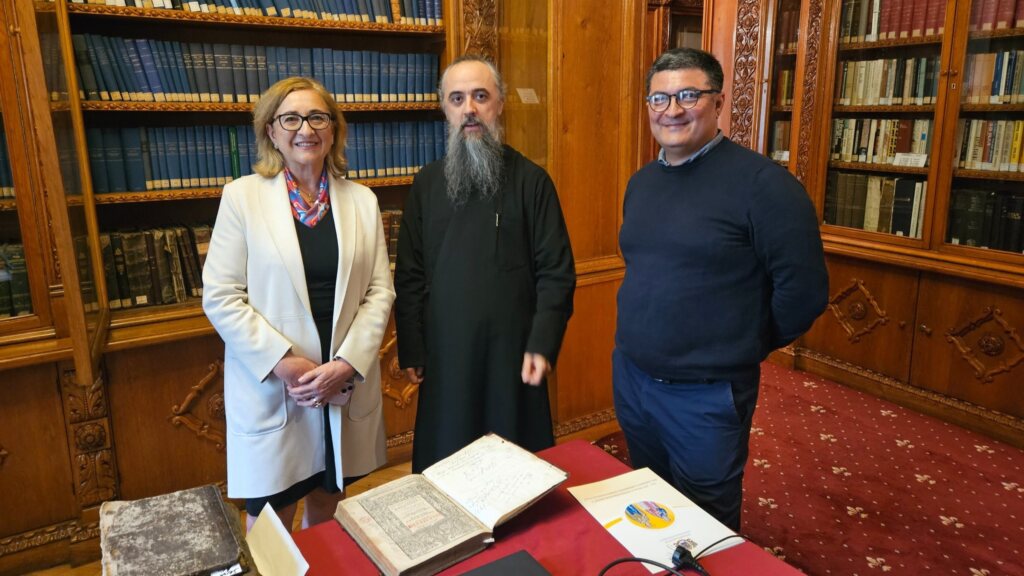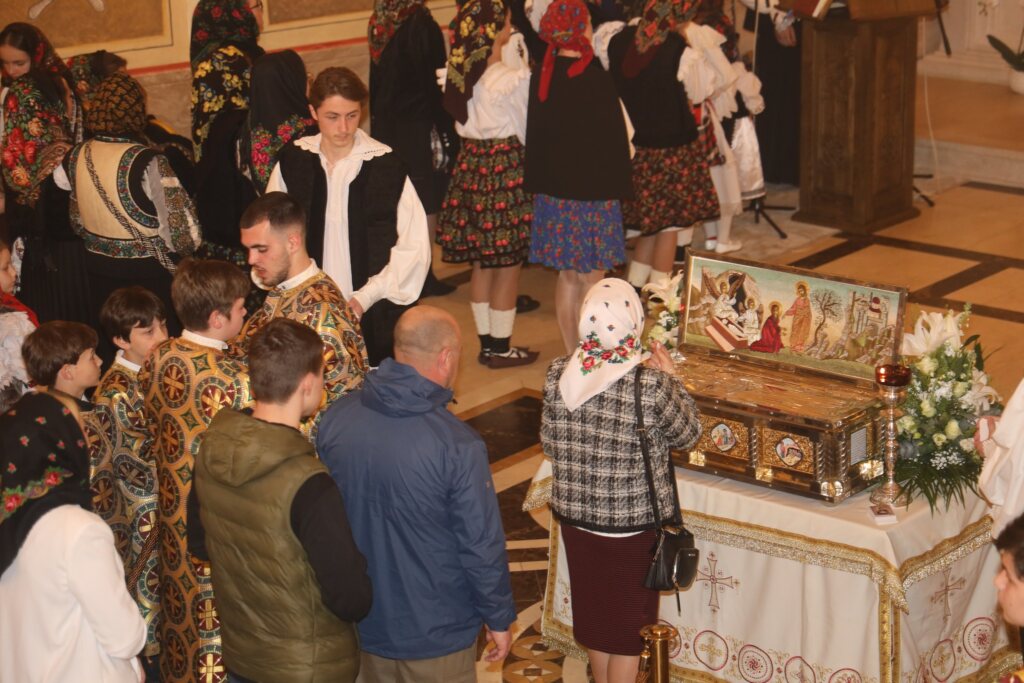During his sermon on Tuesday, Patriarch Daniel referred to two aspects of God’s presence and work in the world through Saint Demetrios the New: on the one hand, the delicacy and the miraculous help offered to the believers, on the other hand, the ‘bitter medicine’ administered to people for correction.
The Patriarch of Romania highlighted that ‘the manifestation of God’s Kingdom in the world is observed particularly in the life of the Saints, through their righteous faith and pure life according to God’s will. That is why the Psalmist prophetically says, “God is wonderful in His Saints.”
‘What we see in the life of Saint Demetrios the New is exactly how the Kingdom of God works in this world. The Kingdom of God is not striking; it does not shock; it makes no noise; it comes secretly into the human soul.’
The Patriarch explained that the gateway to the Kingdom of God in this world is the heart of every man. That is why the venerable Saints practised the Jesus Prayer the most.
“These venerable saints, God-bearing fathers and mothers – as our synaxarion or service books call them, are the most sensitive receptacles of the presence of the Kingdom of God in the world.”
“This Kingdom comes mysteriously, does not force human freedom, does not intimidate, does not scare, but is a gentle, humble presence. That is why the Saviour Jesus Christ says that “the Kingdom of God is within you.”
How delicate and sensitive was St. Demetrios
Recalling the life of St. Demetrios, who was a shepherd and herded sheep and cattle, the Patriarch brought to attention an incident that shows the delicacy and sensitivity of the venerable father:
“It is said that he was so sensitive and merciful that once when he accidentally trampled a bird’s nest and crushed a chicken, he punished himself: for three years he did not wear shoes. He walked barefoot.”
“He lived long in nature. He understood that heaven and earth are God’s creation and God’s house for people, and that is why he believed that all creatures are loved by God, who keeps them in existence.”
Miracles of St. Demetrios
His Beatitude noted the fact that although during his life the Saint was unknown, after his death Saint Demetrios was very honoured because he helped many people through his miracles.
The Saint’s relics were brought to Romania during the Russo-Turkish War in 1774.
“From then until now, his relics have been a shield, a protection, a source of joy and peace, of consolation and blessing for the inhabitants of the city and for all those who came to honour him here,” Patriarch Daniel said October 27.
“His miracles were springing from merciful love for the suffering people,” said the Patriarch.
“For example, in 1814, during the reign of Prince Ioan-Vodă Caragea, the city of Bucharest was stricken by a strong plague epidemic. Then, the relics of the Saint were taken out of the church, carried around the city and, starting from that day, the plague stopped making victims.”
“In 1827, during the reign of Grigorie Ghica IV, there was a long drought, and famine threatened the city and its surroundings. Lacking any help, the people again hoped in the intercessions of Saint Demetrios the New. His reliquary was taken out in procession and, as a result, God gave abundant rain,” the Romanian Patriarch recalled.
“In 1831, the city of Bucharest was almost deserted due to the plague or the cholera epidemic. On September 15, 1831, the relics were also taken out to the Filaret Plain – today’s Carol Park, where General Pavel Kiselyov (…) organized a large religious procession. The clerics carried the Saint on this Filaret plain, so that, through the prayers addressed to him, the number of dead, which until then reached a total of 160 per day, decreased rapidly, finally putting a stop to the plague.”
“God cannot be mocked!”
His Beatitude Patriarch Daniel noted that “people honoured St. Demetrios especially in the difficult years of communism when the Church was persecuted.”
“In the autumn of 1989, on the feast of St. Demetrios the New, on October 27, the communist authorities forbade people to venerate the holy relics of St. Demetrios, motivating that on the same day, in the adjacent building, where the Grand National Assembly was located, an important meeting took place. Thus, Patriarch Teoctist was forced to transfer the reliquary from the Metropolitan Hill, from the Cathedral. Still, he did not take it too far, but to the nearby St. Nicholas-Vladica Church,” His Beatitude Patriarch Daniel reminded.
“This humiliation of Saint Demetrios the New was repaid in the sense that in a few months the communist regime fell, and in the building next door, which became the Patriarchate’s Palace, on October 27, 2007, on the feast of Saint Demetrios the New, the Basilica Media Centre of the Romanian Patriarchate was established, which broadcasts every day from the Patriarchal Cathedral through television and radio the Divine Liturgy and the Vespers service for the joy of the Romanian Orthodox believers in the country and the diaspora.”
By this, we see that “God cannot be mocked,” as the Holy Apostle Paul says (Galatians 6: 7). “He is long-suffering, but he is also just. First, His merciful love overwhelms His justice. His justice is shown when He wants to correct people, sometimes using bitter medicine, not only sweet ones, for correcting people, and so He allows them to be disciplined by various trials.”
Tuesday’s Divine Liturgy was the focal point of the celebrations of St. Demetrios the New held this year in special conditions. Only the three assistant bishops from Bucharest, a few priests and deacons, concelebrated with the Patriarch.
Only believers from Bucharest could participate. About 200 people were able to take part in the service in the specially arranged space according to the sanitary safety measures. About 30,000 people managed to venerate the holy relics.
Photography courtesy of Basilica.ro
Thank you for reading Basilica.ro.
